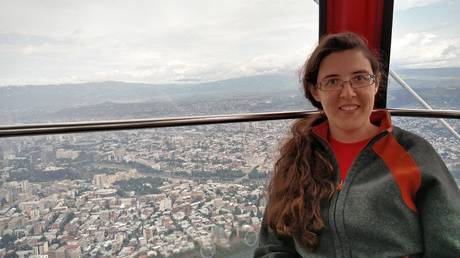
The researcher reportedly traveled to Kurdistan with a Russian passport
Israel announced on Wednesday that Princeton University doctoral candidate Elizaveta Tsurkova has been taken hostage in Iraq by the Shi’ite militia Kataib Hezbollah. Tsurkova used her Russian passport to travel for “academic research,” PM Benjamin Netanyahu’s office said.
Tsurkova has been “missing for several months” but is still alive, Netanyahu’s office said, adding that Israel holds Iraq responsible for her fate and safety.
A diplomatic source speaking to Jerusalem Post “categorically denied” that the woman was a Mossad agent or that her trip to Iraq was on “any official Israeli business.” The source said Israel was doing “all it can” through several diplomatic channels to ensure her release.
West Jerusalem would have preferred to stay silent on the hostage situation, but chose to release the information ahead of a news report on the issue, the source added.
The report in question appears to be from The Cradle. The outlet said Tsurkova was “kidnapped from a house in the Karrada neighborhood of Baghdad on 26 March” and that her abductors wore “official Iraqi security service uniforms.”
According to Iraqi security sources, Tsurkova arrived in the Kurdistan region before moving to Baghdad, using a Russian passport because Israeli citizens are banned from the country. She may have used the same documents for traveling to Syria and Lebanon as well, the Israeli diplomatic source told the Jerusalem Post.
The Russian embassy in Baghdad told the Cradle they had “no evidence about the individual mentioned in your request neither about her nationality nor her story in Iraq.”
Tsurkova speaks Arabic, English, Hebrew, and Russian. The last post on her Twitter profile was on March 21. She had served in the Israel Defense Forces (IDF) and led a Palestinian rights NGO, before reinventing herself as an expert on the conflict in Syria. She has championed regime change in Damascus and promoted the “moderate rebels” such as the Al-Qaeda affiliate al-Nusra Front, later known as Hayat Tahrir al-Sham (HTS).




